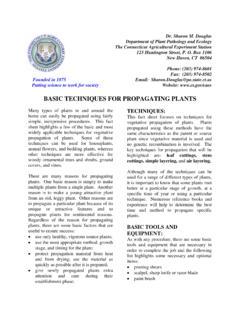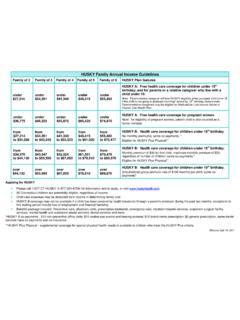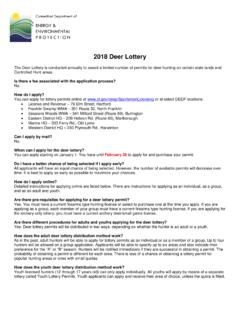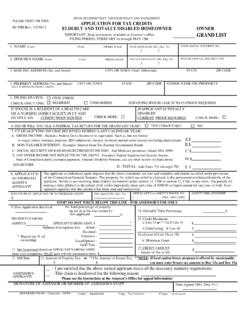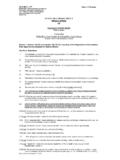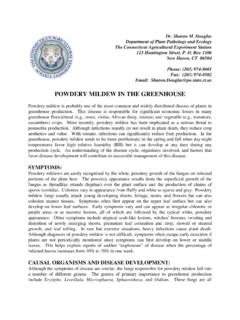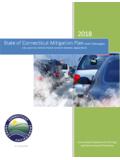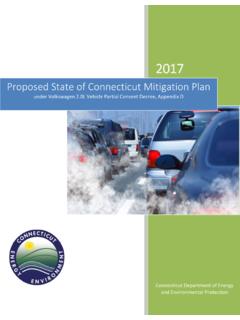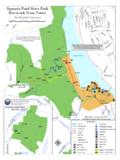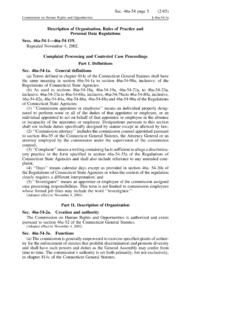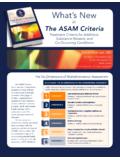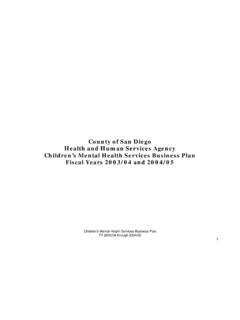Transcription of Co-Occurring Disorders Curricula Guide
1 Co-Occurring Disorders Curricula Guide April 2010. CT Department of Mental Health and Addiction Services Introduction This document is intended to be complementary to the DMHAS Co-Occurring Capable (COC) and Co- occurring Enhanced (COE) Program Guidelines. The intent of this summary is to provide direction, without being prescriptive, and to emphasize those elements that are of particular importance in the treatment of individuals with Co-Occurring Disorders (COD). The goals of providing psycho-education about mental health and substance use Disorders and skill-building activities for individuals who have Co-Occurring Disorders are to: 1) Increase individuals' awareness and understanding of their specific Disorders as well as available treatments and supports appropriate to their service needs.
2 2) Reduce stigma by providing factual information in a group setting and making it safe for participants to talk about both Disorders ;. 3) Provide a more inclusive and inviting treatment environment;. 4) Improve quality of care by supporting and providing integrated treatment;. 5) Enable greater individualization and flexibility in recovery planning. In the development of these guidelines, several assumptions have been made: 1) The majority of psychoeducation and skill-building, using these Curricula , will be done in groups;. research has indicated that peer-oriented group interventions directed by a professional leader, despite heterogeneity of clinical models, are consistently effective in helping clients to reduce substance use and to improve other outcomes . (Drake, R.
3 , Mueser, K., & Brunette, M. 2007. Management of persons with Co-Occurring severe mental illness and substance use disorder: Program implications. World Psychiatry, 6, 131-136). 2) Programs with either a substance abuse or a mental health license, not dual licensure, may provide education related to Co-Occurring Disorders within the concept of relapse prevention of the designated disorder being treated;. 3) Psycho-educational groups are not treatment groups, individual clinical issues that may arise out of a group discussion should be referred to a clinician or prescriber as appropriate;. 4) Groups will be implemented with consideration given to participants' stage of change related to both mental health and substance use Disorders ;. 5) COE programs will routinely integrate these educational and skill-building elements.
4 6) Successful/effective implementation of these Curricula in entirety will be related to levels of care and length of stay. Recommended Curricula Elements and Curricula The next three pages identify seven recommended Co-Occurring Disorders curriculum elements, and delineates them into Co-Occurring capable and enhanced categories. The content of several published Curricula was reviewed and pages five and six compare the Curricula across these seven elements. These recommended Curricula are not individually identified as COC or COE as this would only be determined by both the level of detail and the degree of routine integration into treatment services that a program implements. Likewise, two of the Curricula (Velasquez, et al. and Monti et al.) do not contain information on both mental health and substance use problems, but implementing these substance use-focused Curricula in a mental health program would be part of providing Co-Occurring programming.
5 Page seven lists the recommended Curricula , including information on how to obtain them. Co-Occurring Curricula Workgroup: Joan Huskins, Morris Foundation; Nancy Alberghini, Community Health Resources; Rhonda Kincaid, DMHAS; Cindy Salmoiraghi, Morris Foundation 1. Recommended Co-Occurring Disorders Group Curriculum Elements Curriculum Element Co-Occurring Capable (COC) Co-Occurring Enhanced (COE). Same as COC &: 1) Definition of Co-Occurring a) Definition of Co-Occurring Disorders Mental Health and d) Education on how to present recovery-oriented Substance Use Disorders , b) Basic information on biological and environmental language and Person First risk factors related to development of mental language health and substance use Disorders c) Education about using person-first language.
6 Same as COC &: 2) Signs and Symptoms of a) DSM IV TR definition of substance abuse substance use and common Disorders , the disease concept, criteria for d) Education with specific content for specific Disorders mental health Disorders , dependency versus abuse, physiological effects of and co-morbidities with attention to the integration of and their interaction substance use, withdrawal, criteria and both substance use and mental health Disorders physiological concept of detox e) Education on diagnostic issues including stabilization, b) The associated major signs and symptoms of the remission, and the ability for a diagnosis to change in most common mental health Disorders as presented relation to a Co-Occurring substance abuse disorder by the DSM-IV TR (not a basis for self-diagnosis).
7 Including Anxiety, Depression, PDST, Bipolar Disorder, Schizophrenia &other Thought Disorders c) Basic information on how mental health disorder signs/symptoms interact and effect signs/symptoms of substance use disorder and vise versa Same as COC &: 3) Medications a) Basic concept of medication versus drug within context of maintaining drug-free, basic/general b) Education on specific medications typically information about medications for major Disorders ; prescribed for major Disorders , possible side effects, basic information on the appropriate use of interaction between medications and substances;. medications, side effects, interaction with education on how to self-monitor use of medications substances, importance of communication with and signs/symptoms, best utilize available resources, individual's prescriber and communicate effectively with prescriber 2.
8 Curriculum Element Co-Occurring Capable (COC) Co-Occurring Enhanced (COE). Same as COC & : 4) Recovery Options and the a) Basic information on principles of treatment Stages of Change including need to address/blend/integrate treatment f) Education to help individuals acknowledge their own for both substance use and mental health Disorders Co-Occurring Disorders , identify their stage of change for each diagnosis, coping skills and foundation to b) Different treatment strategies including express self as an individual with Co-Occurring medication, psychotherapy, holistic/alternative, Disorders . professionals, family members, self-help, natural supports, peer, 12-step support, etc. g) Education on how to find 12-step or other types of support groups specific to individual's needs, c) Definition and explanation of Stages of Change strategies for coping or managing challenges w/using model including basic description of the thinking self-help resources finding small meetings for and behaviors of each stage, goals or behaviors individual with anxiety disorder.
9 Needed to move to the next stage of change, that movement can occur back and forth through stages, and that individual can be in different stages for addiction vs. mental health recovery d) Education related to self help principles and resources, including AA/NA and other 12-step groups such as Dual Recovery Anonymous, All Recovery meetings and family support groups. Information on specific area 12-step meetings open to individuals with Co-Occurring Disorders Same as COC &: 5) Relapse prevention/coping a) Basic relapse prevention education/skills related to skills/healthy living substance use and mental health Disorders within c) Relapse prevention education/skills related to both context of relapse prevention. Disorders individually and as they interact with each other b) Basic information about effects and interaction of d) Information to help develop and utilize coping skills physical wellness and mental health/addiction for both mental health and substance use disorder Disorders and vice versa, and the role of health care signs and symptoms and nutrition in recovery.
10 E) More detailed information regarding health care risks related to substance use and/or mental health Disorders , and related medications, as well as the role of nutrition and physical wellness in recovery 3. Curriculum Element Co-Occurring Capable (COC) Co-Occurring Enhanced (COE). Same as COC. 6) How/where to get help for a) General information on statewide mental SA/MH/primary care health/substance abuse resources (including CT. access and process Clearing House, 211, DMHAS website and regional Health Care Systems offices), and local medical care resources. Education related to differences between MD, Psychiatrist, PhD, LCSW, and APRN. Same as COC. 7) Relationships/recovery a. Education of community supports statewide supports/community , The Mental Health Association of CT for resources for family and information on meetings, NAMI, clients AlAnon/NarAnon, and Families Anonymous (a 12- step program for friends and families).
